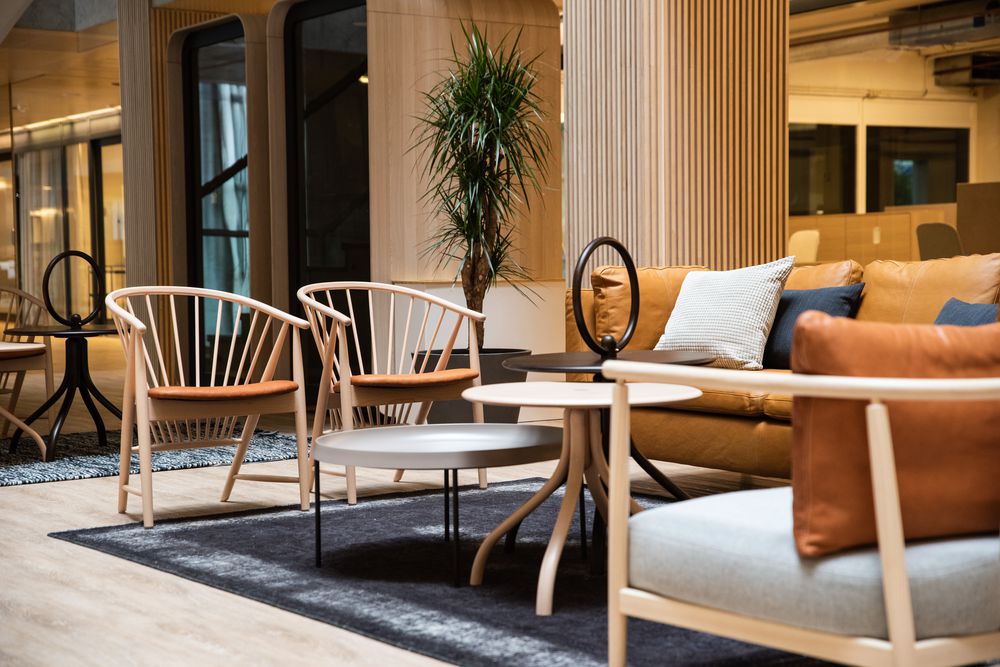In the final interview for our "Future of Workspaces" series, we speak to Bart Meijer, CEO of MRP — a leader in the Dutch real estate market. With a family that has been working in real estate for over a century, we were lucky enough to explore Bart's views on the post-pandemic office, the power of modular real estate, and why joining forces with NORNORM was the perfect match for MRP's new "Flex Offices".

What trends, ideas and innovations do you think will define “the future of work.”
BM: We believe in mixed-use developments where people live, work and enjoy their lives. People are craving to meet and see each other after a year of lockdown. Due to the pandemic big companies will reuse office spaces and will use an office in a more flexible way, perhaps only for two or three days a week and for certain meetings. Being at the office has been transformed as a necessity to interact and connect with each other.
Many large institutional office users are uncertain about the capacity needed post pandemic. The NORNORM solution gives the greatest flexibility with the smallest environmental impact. There will be more subscription models, digitalisation will be key and services must be available on all levels. Offices will be a place for engagement, a new way of inspiring, challenging and connecting with each other with hybrid functions. It can be that a company has an HQ in one city but offers a flexible office space format for their employees in the city they live in.
Can you expand on what you mean by modular real estate and how this applies to the shifting needs of our society?
BM: To be able to change to the needs of the customers, to give a choice instead of determine what the customer wants — will be key for future developments. A home or an office, should (and could) be custom made for you. This means using prefabrication, technology such as 3-D printing, a digitalised platform in which customers or companies can chose and subscribe for their own furniture, kitchen, mobility, meeting space etc.
MRP is responsible for reshaping one of the most iconic corporate hubs in Amsterdam, the WFC Amsterdam. What went into the thinking and planning aspect of turning this traditional building into a more innovative, sustainable and connected workspace?
BM: WFC Amsterdam, centrally located in Amsterdam at the Westas A10, has always been a vibrant place where people work, meet, get inspired etc. A large transformation is planned to change from a mono-functional building to a future-proof mixed-use development. We want to realise a healthy urban living and working environment with different innovative and creative tech facilities for users, the neighbourhood, the city of Amsterdam and international visitors.
This needs a next level development of workspaces, housing, mobility and the type of facilities available.
We started with launching MRP Flex Offices, where we offer tenants a wide variety of work spaces and the possibility to rent units from 50m2 to 625 m2 in size. You can choose between fully customised spaces, private NORNORM furnished offices or co-working spaces. It all depends on what our tenant want. You can always find out more at www.mrpflexoffices.com
You have previously talked about the importance of ‘access for all’ and in making buildings more inclusive. As the demographics and needs of our urban centres continue to evolve, can you speak about how you are addressing this in your space planning projects?
BM: At MRP, real estate means investing in our communities in an impactful and meaningful way. The built environment is the foundation for all social progress. MRP considers inclusivity and accessibility in every aspect of what we do. By focusing on social responsibility, we ensure that we build a future where everyone feels at home.
As we start to enter a post Covid world, what do you see as the biggest challenge/opportunity in terms of space planning as companies start to open up their doors again?
The opportunities are that people want to
1. Meet and see other people.
2. Get back to their workplace and to contribute to a sustainable future.
The challenge is to be flexible enough, to adapt rapidly to the changing of needs, to offer the right services, places and products.
Why was the integration of “Flex Offices” so important for your design planning, and what first drew you to using a subscription based furnishing service like NORNORM?
BM: MRP started in October 2019 with the concept of MRP Flex Offices to create flexible workplaces in a to be realised mixed-use environment. It was already our vision that the working and living environment would change, not knowing the pandemic would accelerate this view.
During 2020 we joined forces with NORNORM to initiate the first project in August 2020. It was a perfect match at first sight. We both want to create sustainable and innovative workplaces, to be good for people and our planet. MRP has the flexible space, and NORNORM has the flexible and innovative concept.
Together we turn stones into milestones.
